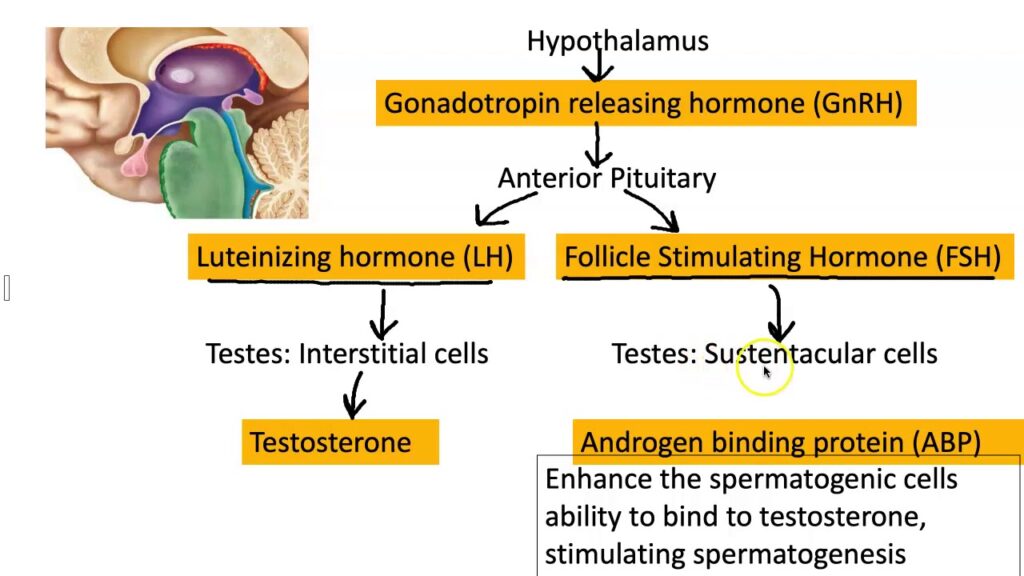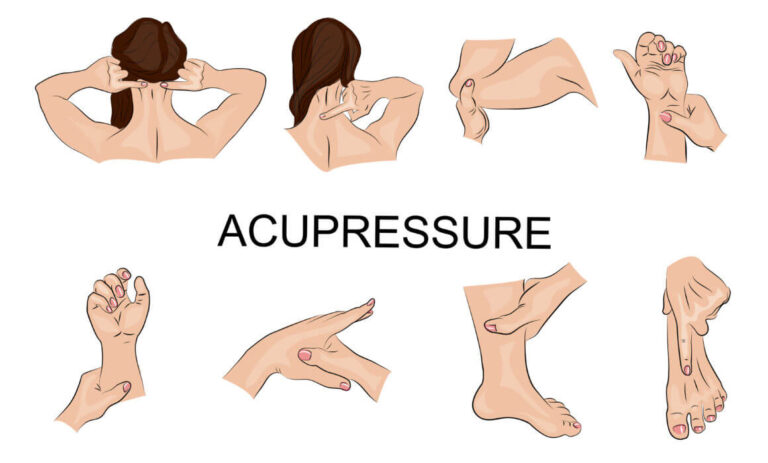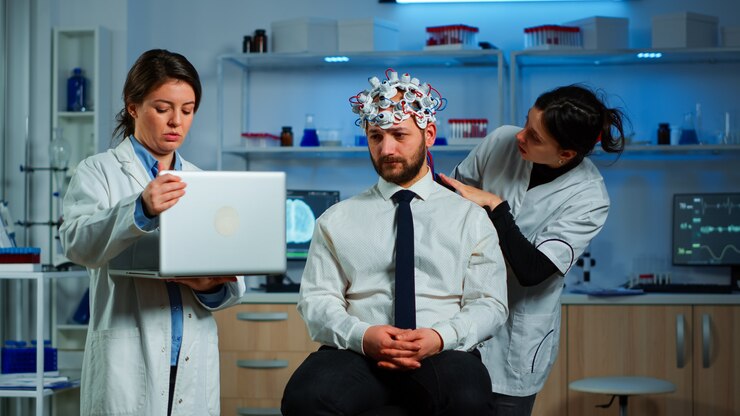Optimizing Intimacy: Tips for Enhancing Men’s Sexual Health

Understanding the Basics of Male Sexual Health
Male sexual health is an umbrella term that encompasses a variety of factors crucial for the overall wellness and functioning of an individual. It’s of significance not only concerning fertility aspects but also in maintaining libido, physiological well-being, and healthy relationships. A deeper comprehension of male sexual health involves understanding the roles played by myriad factors, including hormones, psychological attributes, lifestyle elements, and diet, among others. Hormones, predominantly testosterone, play a pivotal role in controlling sexual desire, erections, and spermatogenesis. Psychological factors like anxiety, stress, and depression can moderate sexual urge and performance, highlighting the interrelation of mental health and sexual health.
Investing in a healthy lifestyle can greatly enhance male sexual health. Regular physical activity, for instance, increases blood flow, boosting sexual function and prowess. A balanced diet rich in lean proteins, fruits, vegetables, and whole grains is integral in maintaining hormonal balance and enhancing sexual vitality. Sleep, often a neglected factor, is vital for testosterone production; its deficiency can lead to decreased libido. Alongside these, harmful habituations like smoking and excessive alcohol consumption can cause erectile dysfunction and lowered sexual function. Regular medical check-ups can help monitor any underlying issues like prostate problems, high cholesterol, and hypertension that can affect sexual performance. The key to managing sexual dysfunctions often lies in understanding its origin – be it medical, psychological, or lifestyle-induced, all of which significantly underscores the importance of understanding the basics of male sexual health.
Significance of Regular Physical Exercise for Sexual Prowess

Regular physical exercise can play a pivotal role in enhancing and maintaining men’s sexual health. Studies have shown that regular, moderate-to-vigorous physical activity can help enhance sexual arousal and activity in men, due to the promotion of blood flow and a healthier heart. Exercise decreases the risk of developing conditions that can impair sexual function, including obesity, hypertension, and high cholesterol. It also helps to boost testosterone levels, which plays a key role in men’s sexual health. Evidence suggests that men who engage in regular physical exercise have a lower risk of erectile dysfunction, highlighting the importance of maintaining an active lifestyle.
Moreover, exercise contributes to better sexual prowess by enhancing mental health and confidence, critical factors in sexual performance. Physical activity is known to reduce stress levels and improve mood, two factors that can affect sexual desire and functionality. Confidence in one’s physical appearance, supported by regular exercise, can also positively impact a man’s sexual life. Regular exercise provides an opportunity for men to feel more comfortable and confident in their bodies, which can translate to improved satisfaction and performance in sexual activities. The existence of these exercise benefits demonstrates the unavoidable connection between physical health and sexual health, and underscores the necessity of regular exercise in a well-rounded approach to men’s sexual health.
Role of Balanced Diet in Maintaining Sexual Vitality
A substantial portion of male sexual health lies in the nourishment your body receives. Appropriate dietary choices play a pivotal role in sustaining sexual vitality and wellness in men. Researchers have found that certain nutrients may aid in enhancing blood flow, hormonal balance, and energy levels, all contributing substantially to sexual performance. Consuming a balanced diet loaded with lean proteins, heart-healthy fats, whole grains, and a plethora of fruits and vegetables guarantees these nutrients in ample amounts. Chronic ailments such as hypertension and diabetes, which can negatively affect sexual health, can also be mitigated with an appropriate diet.
Here is a table with some scientific research studies about the role of balanced diet in maintaining sexual health.
| Article Title | Main Findings | Journal Name and Year |
|---|---|---|
| Lifestyle Factors Supporting and Maintaining Sexual Activity in Older Adults | This chapter discusses how lifestyle factors such as physical activity, healthy diet, non-smoking, and moderate alcohol consumption can promote and support satisfying sex in older adults. It also provides practical tips on how to optimise one’s lifestyle and sexual activity. | Sexual Behaviour and Health in Older Adults |
| Best food for sex: How to enhance sex, stamina, and libido1 | This article reviews some of the best foods for sex that can improve sexual performance, stamina, and libido. It also explains how these foods work and what benefits they offer. Some of the foods mentioned are berries, nuts, seeds, fish oil, dark chocolate, and spices. | Medical News Today |
| How Nutrition Affects Your Sexual Health2 | This article explains how nutrition can affect various aspects of sexual health, such as hormones, blood circulation, inflammation, mood, libido, and orgasm. It also gives some examples of foods that are beneficial or harmful for sexual health. | TheBody.com |
On the flip side, processed foods and high sugar intake can lead to issues like obesity and heart disease, which often result in decreased sexual vitality. Items like processed meats, grains, and sugar-sweetened beverages are typical culprits, leading to inflammation and other health disturbances affecting sexual performance. A study conducted by The American Journal of Clinical Nutrition found men who consumed mostly processed foods had lower fertility compared to those who incorporated more whole foods into their diet. Thus, ensuring a balanced diet teeming with fresh, unprocessed foods can serve as a significant pillar of sexual vitality in men.
Importance of Adequate Sleep for Sexual Performance

Sleep, often overlooked, plays a crucial role in maintaining good sexual health in men. Extensive scientific research supports the assertion that adequate sleep significantly influences testosterone levels, the primary male sex hormone responsible for many facets of sexual health. A comprehensive sleep study conducted in 2011 by the Journal of the American Medical Association revealed that men with poor sleep patterns exhibited a noticeable reduction in testosterone levels. This hormonal dip can negatively influence libido, energy levels, and overall sexual performance. The importance of quality rest transcends mere hormone regulation.
Here is a table with some information about the importance of adequate sleep for sexual performance. I hope you find it useful.
| Information | Source |
|---|---|
| Sleep and sex are complex, interconnected aspects of overall well-being. Sleep deprivation and sleep disorders can negatively influence arousal and libido. Sex can positively affect sleep by reducing stress and regulating hormones, but the timing and intensity of sexual activity may cause sleep disruptions. Prioritize communication and sleep health for an improved sex life and more restful sleep. | The Relationship Between Sex and Sleep |
| Poor quality sleep and low sexual satisfaction share many of the same root causes. A good way to protect their quality is to prioritize both in a way that makes sense for you, individually. | The Surprising Connection Between Sleep and Sex |
| Poor sleep quality, but not sleep duration, was associated with greater odds of female sexual dysfunction. Good sleep quality, in contrast, was linked with sexual activity. Understanding this association is valuable as clinicians seek to identify potential treatment options for women affected by sleep and sexual problems. | Poor sleep quality linked to female sexual dysfunction, shows study |
On a physiological level, sleep has a direct impact on erectile function as well. This premise is illustrated by the fact that nocturnal penile tumescence – the phenomenon of spontaneous erections during sleep – is a key indicator of male sexual health. A lack of these occurrences can be a sign of underlying sexual disorders. Moreover, Erectile Dysfunction (ED), a common sexual dysfunction in men, is closely linked to sleep disorders such as sleep apnea, as affirmed by a study published in the International Journal of Impotence Research. Thus, fostering healthy sleep patterns is integral to maintaining optimal sexual performance. These factors unequivocally stipulate the importance of adequate sleep in promoting healthier and more fulfilling sexual experiences for men.
Impacts of Stress on Men’s Sexual Health
Stress has a significant correlation with sexual wellness in men, often creating an obstacle in optimal sexual health. In the hustle-bustle of life, chronic stress can disrupt the natural balance of the body leading to various health complications. Sexual health often bears the brunt of this stress with severe consequences. In line with research, the American Psychological Association revealed that 30% of men reported stress having a considerable impact on their sexual health. The study demonstrated that the endocrine system, responsible for hormone production, experiences a shift during periods of stress which can result in diminished sexual desire and performance in men.
Stress triggers the body to produce excessive cortisol, also referred to as the “stress hormone”. High levels of this hormone can weaken libido, cause erectile dysfunction, and even lead to issues of infertility. A study published in the Journal of Sexual Medicine supports this claim, establishing a strong link between elevated cortisol levels and decreased sexual function. Stress can also subtly infiltrate men’s lifestyle choices, coaxing them towards poor habits like excess alcohol consumption or smoking, which further aggravate these issues. It’s essential to acknowledge these impacts of stress on male sexual health for better understanding and management.
Effects of Alcohol and Smoking on Male Sexual Function

Alcohol and smoking, two prevalent habits among men, can have a significant impact on male sexual function. These substances, often consumed to alleviate stress or initiate relaxation, can indirectly lead to sexual dysfunction if used excessively. Alcohol, a depressant, can cause temporary or lasting impairments to sexual arousal and performance. It affects the nervous system, reducing sensation and making it harder to achieve and maintain an erection. This is backed by research, such as a 2007 study in the Journal of Sexual Medicine, which found that men who consume alcohol had significantly higher rates of erectile dysfunction.
Similarly, smoking carries its own set of risks for sexual health. The flow of blood is crucial for arousal and sexual performance in men. Smoking, particularly long-term, can result in blood vessel damage and consequent reduction in this critical blood flow. Several studies, including a 2011 research published in the British Journal of Urology International, reinforce this, asserting that smoking men are more likely to experience erectile dysfunction. Furthermore, the harmful effects of smoking extend beyond sexual performance, encompassing overall fertility, with smoking linked to decreased sperm count and motility. These detrimental effects emphasize the need for men to evaluate their lifestyle choices and take informed decisions for safeguarding their sexual health.
Role of Regular Medical Checkups in Sexual Health
Prioritizing routine medical check-ups can play a crucial role in maintaining and improving men’s sexual health. Regular physical examinations ensure early detection and treatment of conditions that might impact sexual performance or lead to sexual disorders. According to the American Urological Association, diseases such as diabetes, cardiovascular issues, and hormonal imbalances, can adversely affect male sexual function, causing problems like erectile dysfunction, low libido, and infertility. Therefore, timely diagnosis and management of these diseases through routine check-ups can significantly minimize such complications.
Additionally, regular medical check-ups encompass necessary screenings and tests explicitly aimed at evaluating male sexual health. Prostate exams, testosterone level tests, and screenings for sexually transmitted infections (STIs) are some examples. Research conducted by the Prostate Cancer Foundation suggests that early detection of prostate abnormalities could prevent further deterioration of sexual health. Similarly, managing testosterone levels can directly influence the sexual wellbeing of an individual, as per the Journal of Clinical Endocrinology and Metabolism. Regular screenings for any STIs also contribute to a healthy sexual life by preventing untreated infections that could otherwise cause severe complications. Hence, seeking regular medical attention is indispensable for optimal sexual health.
Understanding and Managing Sexual Dysfunctions
Individuals experiencing sexual dysfunction often encounter significant distress resulting from diminished sexual interest, low arousal, dysfunctional ejaculation, or erectile dysfunction. Not uncommonly, these conditions are intricate and multifaceted, with both physical and psychological factors playing integral roles. Potential physical causes comprise cardiovascular disease, diabetes, or hormonal imbalances, while psychological factors take in stress, anxiety, or depression. Prostate cancer treatments or surgeries involving the pelvic region may also lead to sexual dysfunction. These difficulties affect a large proportion of males with studies indicating about 52% of men aged between 40 and 70 experience some form of erectile dysfunction. Hence, understanding and comprehending these issues is pivotal in managing them efficiently.
Managing sexual dysfunction begins with an accurate diagnosis. Direct communication with a healthcare provider leads to the best understanding of the problem’s origins. A comprehensive medical history, physical examination, and routine blood tests are often the first steps in pinpointing the root cause. Furthermore, doctors may opt for specific diagnostic tests such as overnight erection tests, psychological exams, or prostate-specific antigen (PSA) tests depending on individual circumstances. Treatment typically encompasses a variety of approaches including medication, hormone therapies, psychological counseling, or possibly surgical procedures in severe cases. Management of underlying conditions is also essential as it would greatly contribute to improvement in sexual function.
Benefits of Open Communication about Sexual Needs
Engaging in frank and open discussions related to sexual needs is an integral part of a healthy sexual relationship. It fosters mutual understanding, increases intimacy, reduces anxiety and, consequently, enhances the sexual experience. Numerous studies have indicated that couples who regularly communicate their sexual desires, fears and boundaries experience more sexual satisfaction compared to those who don’t participate in such discussions. This is due to better alignment of sexual expectations, leading to fewer misunderstandings and increased feelings of safety and trust.
It’s important to note that having an open conversation about sexual and intimate needs is not just about expressing desires or discussing problems. Mindful communication also involves actively listening to the partner’s sentiments, affirming their feelings, and coming up with solutions together. It can often seem challenging to start such conversations but taking the first step can significantly contribute to the achievement of collective sexual happiness. Regular open discussions about sex can also contribute to the early detection of potential sexual health issues, thereby promoting timely seeking of medical advice, ultimately leading to healthier sexual lifestyles. Knowledge is indeed power, in sexual health as in all things. It’s essential to create a non-judgmental environment for these discussions to flourish. It is by discussing, understanding, and connecting on this intimate level that couples can indeed enhance their sexual health and happiness.
Advantages of Experimentation in Sexual Activities

Bringing variation and experiments in the bedroom can yield to multiple advantages. At the outset, it provides an opportunity to break the monotony and discover exciting facets of your sexuality. Research confirms that engaging in different sexual activities leads to satisfaction, further decreasing the rate of infidelity in relationships. It’s a chance to explore, learn, and know your partner’s desires, enhancing the closeness and connection between couples. Experimentation also acts as a beneficial tool to learn about one’s preferences, boundaries, and sexual response, which is a significant step towards understanding self-sexuality.
Moreover, from a scientific and health perspective, variation in intimacy boosts the release of Oxytocin, also known as the ‘Love Hormone’. This hormone is a potent natural antidote for depression, stress, and anxiety, leading to an overall enhancement in mental health. On the biological front, experimentation can also lead to improved sexual functioning. For instance, various positions can help overcome problems related to premature ejaculation and erectile dysfunction. Experimentation is therefore not just a way of seeking pleasure but also a tool for maintaining one’s overall sexual wellness.
The Connection between Mental Health and Sexual Performance
Mental health plays a paramount role in sound sexual performance. Anxiety and depression, two of the most common mental health issues, are known to have detrimental effects on libido and erectile function. Studies have found that 31% of men with erectile dysfunction also battle against depression, while 17% struggle with anxiety disorders. As these mental health conditions can cause a person to experience persistent feelings of sadness, apathy, and worry, underlying mental health issues often tend to exacerbate the stress associated with sexual activity – potentially leading to a negative spiral of poor performance and escalated anxiety.
The symbiotic relationship of mental health and sexual performance also extends towards the impact of self-esteem and body image. Negative self-perceptions can lead to performance anxiety and produce physical symptoms such as erectile dysfunctions and premature ejaculation. A study in The Journal of Sexual Medicine found that men with poor body image are more likely to suffer from sexual dysfunctions. Interventions aiming to improve mental health, such as therapy, medication, and lifestyle alterations, can contribute majorly to enhancing sexual performance. Thus, caring for mental health is an imperative aspect of maintaining and improving sexual health.
Role of Hormones in Male Sexual Health

Hormones play a vital role in regulating various functions in the human body, including male sexual health. Particularly, testosterone, the primary male sex hormone, oversees numerous aspects related to sexuality and reproduction. Low levels of this hormone can lead to reduced sexual desire, erectile dysfunction, and reproductive issues. A study conducted by the American Urological Association revealed that nearly 2.4 million men suffer from low testosterone levels annually, underscoring the prevalence of this health concern.
In addition to testosterone, other key hormones like luteinizing hormone (LH), follicle-stimulating hormone (FSH), and prolactin also affect male sexual health. LH stimulates the production of testosterone; therefore, low LH levels can contribute to decreased testosterone production. FSH plays a role in sperm development, and hence, any imbalance could compromise fertility. Elevated prolactin levels can result in lower sex drive and difficulty in achieving an erection. A hormonal imbalance, thus, can wreak havoc on a man’s sexual health, highlighting the importance of maintaining optimal hormonal health. Insights from Endocrine Society’s Journal of Clinical Endocrinology & Metabolism indicate an alarming increase in men seeking help for hormonal imbalances, pointing towards the urgent need for enhanced awareness and appropriate management.
Value of Confidence in Enhancing Sexual Experience
Confidence plays an integral role not just in overall well-being, but particularly in enhancing sexual experience. Men with high self-confidence are often found to have better sexual performance. This is backed by science. According to a study conducted in the Journal of Sexual Medicine, men with high confidence levels reported increased sexual satisfaction. They are more comfortable with their bodies, are more likely to communicate their needs, and are generally more open to trying new things. This comfort level extends to their relationships, creating an atmosphere of shared intimacy and openness that bode well for sexual activity.
In contrast, low confidence can lead to sexual dysfunctions such as erectile dysfunction and premature ejaculation. Researchers from the University of California conducted a study that substantiates this link, revealing that men with low self-esteem are more likely to suffer from these problems. Such issues can create a vicious cycle: sexual dysfunction can lead to decreased confidence, which in turn exacerbates the dysfunction. Therefore, boosting self-confidence can be an essential step in improving sexual performance and experience. One way to build confidence is by focusing on overall health and fitness: regular exercise and a balanced diet can improve body image, while open communication about sexual needs can alleviate performance anxiety.
Importance of Building Emotional Connection for Better Intimacy
In a thriving and healthy sexual relationship, the role of emotional connection and intimacy is pivotal. Current research reveals that men who can cultivate an emotional link with their partners often showcase better sexual satisfaction and performance. This interweaving of emotional and sexual wellbeing is robustly supported by the work of researchers such as Hatfield, et al.(2010), who emphasized the association of intimacy with the quality of life in men.
On a physiological level, emotional connection can increase the production of ‘love hormones’ like oxytocin that are known to enhance romantic and sexual feelings. Psychologically, it creates an environment of trust, thereby reducing performance related anxiety and promoting stress-free sexual encounters. A study by Baldwin & Fehr, (1995) found that men who had built emotional trust with their partners reported higher sexual satisfaction. Hence, emotional intimacy not only promotes sexual health by directly influencing physiological response but also provides psychological reassurance and satisfaction.
The Role of Healthy Lifestyle Choices in Maintaining Sexual Health.
Leading a healthy lifestyle significantly contributes towards the maintenance of sexual health. Notably, choosing to follow a nutritious diet enriched with essential vitamins and minerals greatly aids in enhancing libido and sexual stamina. Foods rich in antioxidants such as fruits and vegetables help to improve blood circulation, thereby averting erectile dysfunction and enriching sexual performance. Moreover, Omega-3 fatty acids found in foods like fish foster better hormonal health, which can enhance sexual health. Similarly, maintaining a balanced body weight through dietary choices can also prevent conditions like diabetes and heart problems which contribute to sexual dysfunctions.
Regular physical activity is another vital element in preserving male sexual health. Regular physical exercise replenishes energy, boosts endurance and stamina which immensely contribute to sexual prowess. It significantly helps in maintaining hormonal balance and supporting cardiovascular health, thus mitigating related sexual problems. Furthermore, physical activity effectively reduces stress and anxiety, two major factors that can impair sexual performance. Therefore, integrating a routine exercise regime can lead to substantial improvements in overall sexual health. Conversely, unhealthy habits, such as smoking and heavy consumption of alcohol, can lead to sexual dysfunctions like impaired libido, erectile dysfunction and decreased sperm count. Hence, fostering a healthy lifestyle encompassing balanced diet, regular exercise and smart choices can greatly enhance male sexual health.
What are the key factors that contribute to male sexual health?
The key factors that contribute to male sexual health include regular physical exercise, a balanced diet, adequate sleep, stress management, and regular medical check-ups. Avoiding harmful behaviors like excessive alcohol consumption and smoking also plays a significant role.
Why is regular physical exercise crucial for sexual prowess?
Regular physical exercise enhances cardiovascular health, which is crucial for sexual prowess. Exercise can also boost testosterone levels, improve mood, and promote general well-being, all of which are beneficial for sexual health.
How do diet choices impact sexual vitality?
A balanced diet is essential for maintaining sexual vitality. Nutrient-rich foods provide the body with the necessary energy and stamina for sexual performance. Additionally, certain foods can boost libido and enhance blood flow, benefiting sexual health.
Does inadequate sleep affect sexual performance?
Yes, inadequate sleep can have a negative impact on sexual performance. Sleep deprivation can lead to reduced energy levels, lower libido, and even erectile dysfunction. Hence, ensuring adequate sleep is crucial for maintaining sexual health.
Can stress affect men’s sexual health?
Yes, stress can have significant impacts on men’s sexual health. Chronic stress can cause hormonal imbalances, reduce libido, and lead to sexual dysfunctions. Therefore, stress management is vital for maintaining sexual health.
How does alcohol and smoking affect male sexual function?
Alcohol and smoking can severely affect male sexual function. Smoking can cause vascular damage leading to erectile dysfunction, while excessive alcohol consumption can inhibit sexual reflexes and lower testosterone levels.
Why are regular medical check-ups important for sexual health?
Regular medical check-ups are important for early detection and treatment of any potential sexual health issues. They also provide an opportunity to discuss sexual health concerns with a healthcare provider.
What is the connection between mental health and sexual performance?
Mental health plays a crucial role in sexual performance. Psychological issues like anxiety, depression, and low self-esteem can lead to sexual dysfunctions. Therefore, maintaining good mental health can enhance sexual performance.
How do hormones influence male sexual health?
Hormones significantly influence male sexual health. Testosterone, in particular, is crucial for libido, erectile function, and sperm production. Any imbalances in hormone levels can affect sexual health.
How can open communication and experimentation enhance sexual activities?
Open communication about sexual needs can improve intimacy and satisfaction. Experimentation in sexual activities can break monotony, explore new realms of pleasure, and enhance the overall sexual experience.
How can a healthy lifestyle contribute to maintaining sexual health?
A healthy lifestyle that includes regular exercise, a balanced diet, adequate sleep, and stress management can greatly contribute to maintaining sexual health. Avoiding harmful behaviors and having regular check-ups are also part of a healthy lifestyle that promotes sexual wellness.






